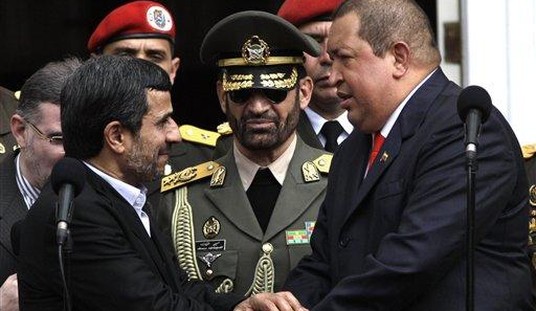Vice president Pence’s speech outlining the administration’s new policy on China may mark the end of what a 2016 article in Slate called “Bill Clinton’s last legislative victory.” Bill believed rebuilding China after the fall of the Soviet Union would bring it into the democratic world order and on to what was then regarded as the end of history. In a 2000 speech at Johns Hopkins University, Clinton said: “Supporting China’s entry into the W.T.O. … is clearly in our larger national interest. It represents the most significant opportunity that we have had to create positive change in China since the 1970’s … The W.T.O. agreement will move China in the right direction.”
On May 24, 2000, Bill Clinton clinched what many believed would be the last great legislative victory of his presidency. That afternoon, the House of Representatives voted to award China permanent normal trade relations, effectively backing Beijing’s long-in-the-making bid to join the World Trade Organization. The historic deal had been Clinton’s top priority in the waning days of his last term.
But as the 2016 Slate article pointed out “things have not worked out quite as the 42nd president hoped. Normalizing trade with China set our rival on a path to becoming the industrial powerhouse the world knows today, decimating American factory towns in the process … If you want to understand why Donald Trump’s furious message about trade resonates with so much of the public, and has helped him come within striking distance of defeating Hillary Clinton and taking the White House, you have to start with another Clinton’s choice at the end of his term.” The Slate article proved prophetic. In late September of 2018 Neil Irwin described in the New York Times what the article sensed, the 2016 “Mini-Recession that many missed”.
Yet understanding this slump — think of it as a mini-recession — is important in many ways.
It helps explain the economic growth spurt of the last two years. The end of the mini-recession in the spring of 2016 created a capital spending rebound that began in mid-2016, and it has contributed to speedier growth since. Oil prices have reached four-year highs, a major factor in a surge in business investment this year.
It helps explain some of the economic discontent evident in manufacturing-heavy areas during the 2016 elections.
The effects of a decision taken 16 years ago may not only helped sink Hillary, but forms the cornerstone of Trump’s strategy. As Steve Bannon told Bill Maher in a recent interview, Trump’s tariffs, renegotiation of trade agreements and tax policy are all aimed at reshaping the supply chain and reducing American dependence on China. The strategy articulated in Pence’s speech, which Victor Davis Hanson described as a declaration of Cold War II, can also be thought of as an attempt to roll back Bill Clinton’s “last great legislative victory.”
Denouncing what he called China’s “whole of government” approach to its rivalry with the U.S., Mr. Pence vowed the Trump administration will respond in kind. He … detailed an integrated, cross-government strategy to counter what the administration considers Chinese military, economic, political and ideological aggression.
The most important new element of Pence’s speech is the accusation that China is embarked on a campaign of subversion aimed at the media, academe, think-tanks and politics. The vice president, presumably communicating Trump’s beliefs, declares that America is under attack from within:
Previous administrations made this choice in the hope that freedom in China would expand in all of its forms -– not just economically, but politically, with a newfound respect for classical liberal principles, private property, personal liberty, religious freedom — the entire family of human rights. But that hope has gone unfulfilled. …
Our intelligence community says that “China is targeting U.S. state and local governments and officials to exploit any divisions between federal and local levels on policy. It’s using wedge issues, like trade tariffs, to advance Beijing’s political influence.”
In June, Beijing itself circulated a sensitive document, entitled “Propaganda and Censorship Notice.” It laid out its strategy. It stated that China must, in their words, “strike accurately and carefully, splitting apart different domestic groups” in the United States of America.
To that end, Beijing has mobilized covert actors, front groups, and propaganda outlets to shift Americans’ perception of Chinese policy. As a senior career member of our intelligence community told me just this week, what the Russians are doing pales in comparison to what China is doing across this country. And the American people deserve to know it.
It is not too different from the current Democratic party meme, except that the role of primary aggressor is played by China rather than Russia. In both cases America’s external enemies have been internalized. The globalized world no longer required Russian and Chinese forces to cross borders. They are here: in the supply chain, through their lobbyists, on the airwaves, in computer networks and social media. The combatants are everywhere mingled. Unlike past conflicts they are too close to risk calling in the proverbial artillery.
The situation resembles what Vietnam war stories prosaically used to call (in those politically incorrect days) gooks in the wire; a situation where the foe was inside the perimeter. “The Vietnamese adage of ‘Grab Their Belts to Fight Them!’ was an attempt to neutralize massive American firepower by hugging the enemy, a tactic used by the Soviets fighting the Germans in World War II.” It was a tactic Moscow and Beijing may have never forgotten and Washington never learned. The foe has grabbed the Beltway tight.
Sixteen years ago the “end of history” miscalculation allowed Beijing and Moscow to close to hand-to-hand range and the cost of clearing the West will be high. While the Special Counsel tries to unravel a Russian conspiracy, the administration is taking ruinously expensive steps to prevent China from gaining access to sensitive American technology. How the contest will play out is highly uncertain. The Second Cold War is turning out to be nothing like the first.
Follow Wretchard on Twitter
For a list of books most frequently purchased by readers, visit my homepage.
Support the Belmont Club by purchasing from Amazon through the links below.
Books:
Custer’s Trials: A Life on the Frontier of a New America, by T.J. Stiles. Winner of the 2016 Pulitzer Prize in History, this book paints a portrait of Custer that demolishes historical caricature, revealing a volatile, contradictory, intense person — capable yet insecure, intelligent yet bigoted, passionate yet self-destructive, a romantic individualist at odds with the institution of the military (he was court-martialed twice in six years). The key to understanding Custer, Stiles writes, is keeping in mind that he lived on a frontier in time. In the Civil War, the West, and many other areas, Custer helped to create modern America, but could never adapt to it. Stiles casts surprising new light on a near-mythic American figure, a man both widely known and little understood.
Tribe: On Homecoming and Belonging, by Sebastian Junger. We have a strong instinct to belong to small groups defined by clear purpose and understanding or “tribes,” a connection now largely lost. But its pull on us remains and is exemplified by combat veterans who find themselves missing the intimate bonds of platoon life at the end of deployment and the high rates of post-traumatic stress disorder suffered by military veterans today. Combining history, psychology, and anthropology, Junger explores what we can learn from tribal societies about loyalty, belonging, and the eternal human quest for meaning. He explains why we are stronger when we come together, and how that can be achieved even in today’s divided world.
For a list of books most frequently purchased by readers, visit my homepage.
Did you know that you can purchase some of these books and pamphlets by Richard Fernandez and share them with your friends? They will receive a link in their email and it will automatically give them access to a Kindle reader on their smartphone, computer or even as a web-readable document.
The War of the Words, Understanding the crisis of the early 21st century in terms of information corruption in the financial, security and political spheres
Rebranding Christianity, or why the truth shall make you free
The Three Conjectures, reflections on terrorism and the nuclear age
Storming the Castle, why government should get small
No Way In at Amazon Kindle. Fiction. A flight into peril, flashbacks to underground action.
Storm Over the South China Sea, how China is restarting history in the Pacific
Tip Jar or Subscribe or Unsubscribe to the Belmont Club










Join the conversation as a VIP Member